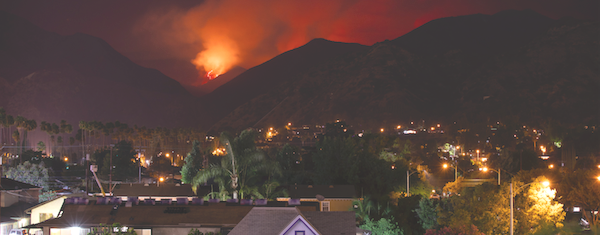Two weeks have passed since arrival for the response to Hurricane Laura, in Louisiana. I moved from the hangar shelter at the Baton Rouge airport to a Baptist Church Camp which is near to Lake Charles, our damage assessment target. It is a welcome change to avoid a long daily commute and upgrade from a cot to a bunk bed.
Damage assessment is a necessary first step which will lead to the distribution of financial assistance. Financial assistance is typically provided to the households with the most severe structural damage and our assessment ensures that donated dollars are getting into the hands of those most affected. As I think about how I would respond if my home was impacted, I think about my savings, insurance, friends and family. When I am in the field and seeing the damage and interacting with impacted individuals, I gain the understanding that those most devastated are those that were living on a slim margin to begin with. They have no reserves or outside support and absolutely need organizations to come in and assist as they enter their new normal and find a safe life. The American Red Cross provides services to anybody who is impacted by the disaster. The only real restrictions come with financial assistance, which is only provided to those living in the most structurally damaged homes.
It is interesting to see the many organizations that spring into action to assist in a disaster. Each has a core mission and the Red Cross works in cooperation with many groups. Some are existing relief groups that deploy to the area and others spring up locally. For example, the Red Cross saves donated dollars by reaching out to groups like the Baptist Camp, where I’m sleeping, so that we stay for free rather than needlessly spend money. The Red Cross comes on the scene early to provide shelter, feeding, and bulk supplies (water, cleaning supplies, etc) but then follows up with financial assistance. We deliver hot meals from our Emergency Response Vehicles (ERVs) but we do not cook food. Typical partners for cooking are the Southern Baptists, who come with semi trailers of food, set up a mobile kitchen under a tent and cook thousands of hot meals a day for us to take into the community. Budweiser switches to canning water, for us to distribute. Team Rubicon is a veteran group that comes with chain saws to assist in cleanup. These are just the tip of the iceberg when it comes to relief support that floods in during a disaster.
I am always amazed at the damage that Mother Nature can inflict. On the Gulf coast as the storm made landfall, the buildings were blown apart, blown away, or severely impacted. As I got further inland, to Lake Charles, the damage was still very large and the homes were primarily crushed by trees, vs blown apart although, there were many buildings simply impacted by the winds. Trees that are broken off, 10-15 feet up the trunk is a new sight for me because most times the trees are uprooted rather than broken off. In Lake Charles, we are experiencing a huge volume of homes where that damage is not visible but shingles were blown off, rain entered the home and now, at the two-week point, these homes are filled with mold. No matter where this storm hit, mobile homes were not a good match for the winds. These latest pictures are in Lake Charles and these were taken 2 weeks after landfall. The roads are lined with stacks of trees, blue tarps cover roofs and damage is on most every street
Donation Notice from the American Red Cross
Disaster Update
Explosive wildfires are devastating communities across the Western United States, causing extreme danger and forcing thousands of people to leave their homes. Significant activity is occurring in Oregon, California, and Washington while additional fires are also burning in Utah, Nevada, Arizona, Idaho, Wyoming, and Montana. These unprecedented and disastrous wildfires have now scorched millions of acres and hundreds of thousands have been evacuated from their homes. It’s heartbreaking to also share with you that several towns have already suffered significant and possibly catastrophic destruction.
Your support makes all the difference as we respond to and help families impacted by the Western Wildfires.
Two-month old rests at a Red Cross shelter
A family who had just moved into housing after a brief stint of homelessness before the fire forced them to evacuate their new home.
Even as the fires continue to threaten, Red Cross disaster responders are working side by side with our partners and local officials to ensure those in need have a safe place to stay and receive comfort in the days ahead. Across the impacted western states:
With the help of partners, the Red Cross has served over 78,300 meals and snacks to people in need.
Nearly 1,600 trained Red Cross disaster workers have been mobilized to support relief efforts.
Over 70,000 overnight shelter and hotel stays have been provided with partners.
Volunteers have provided more than 10,600 individual care contacts to help people with medical or disability needs or provide emotional and spiritual support during this challenging time.
Disaster responder brings supplies to those in need
Red Cross volunteers are helping at many temporary evacuation points, getting wildfire evacuees checked in and identifying what help they may need.
Please James, consider making a donation to help those affected by the Western Wildfires. The incredible humanitarian work of our front-line responders is possible because of generous donors like you. Join us in helping others in this time of great need.
James, it’s supporters like you that make all the difference and our work would simply not be possible without you.
Sincerely,
Trevor Riggen, ARC Senior Vice President, Disaster Cycle Services

